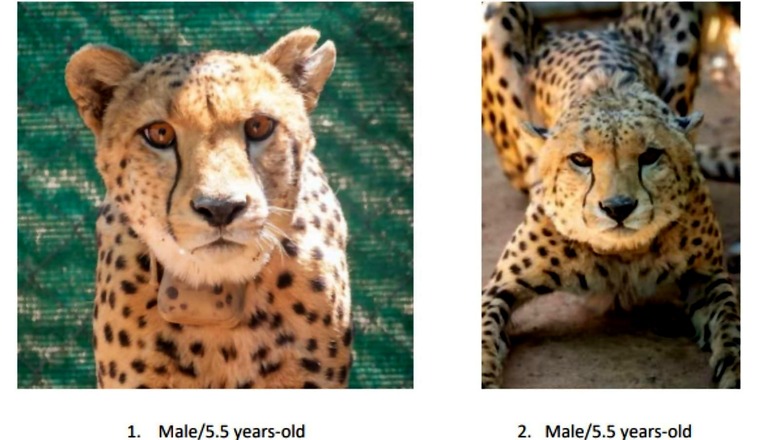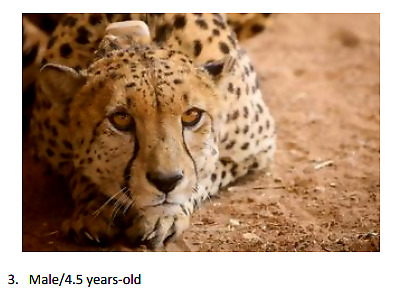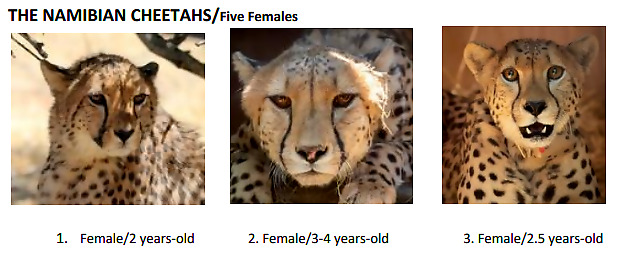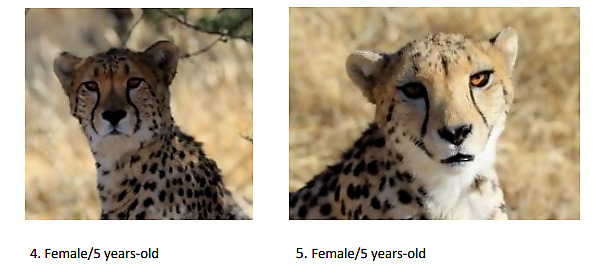
views
Two siblings and two close friends are among the eight wild cats who, in a historic move, reached India from Namibia in a specialised jumbo jet on Saturday.
From the open, large Savannahs of Africa, the African Cheetahs will be moved to their new home — Central India’s Kuno National Park with a total protected area of about 748 sq km. Though closely related and a sub-specie, the animals are different from the Asiatic Cheetahs which were native to India before they went extinct in the 1950s.
The historic trans-continental mission — believed to be one of the biggest such translocations of a top predator undertaken by India in recent years — is expected to set the stage for the arrival of more elusive wild cats in the coming years until a founder population is established in India.
The proposal had been in the discussion stage for years and was set in motion after the orders of the Supreme Court. The first set includes three males and five females who were identified after a long-drawn process of health checks and ability to hunt in the wild. The animals will form a part of the founder population of cheetahs in India and will be accompanied by more cheetahs in the coming years.
Two Brothers
According to the Namibia-based Cheetah Conservation Fund (CCF), which is monitoring the entire mission along with Indian authorities, the first batch includes two male siblings who were first spotted by their local staff in 2021. The two 5.5 years old adult cheetahs had been living in the wild on CCF’s 58,000-hectare private reserve near Otjiwarongo, when the staff noticed their tracks around the centre. According to wildlife experts, while female cheetahs normally hunt alone, the males — especially those from the same litter — stay together for life and form coalitions to hunt.

Joining them is another male cheetah, albeit a year younger at around 4.5 years, who was born at Namibia’s Erindi Private Game Reserve in March 2018 – the same place where his mother was born.
Youngest at 2 years old
The youngest of the batch is a two-year-old female cheetah who was first spotted with her male sibling at a waterhole near Gobabis, a city in Namibia. According to CCF, when the cubs were first spotted, they were too skinny and malnourished, and it was believed that their mother had apparently died in a veld fire a few weeks before they were found. The cubs had been living at the CCF Centre since September 2020.
Accompanying the young cheetah is another female wild cat aged between 3 and 4 years who was captured in a trap cage on CCF’s neighbouring farm, which is owned by a prominent Namibian businessman, in July 2022. She was released on CCF property but was caught on the same neighbouring farm again two months later.

The average life span of a cheetah is around 8-12 years. The cubs are largely protected by their mother till they are about 1.6 years old, after which she usually moves to hunt alone.
The third female cheetah, aged 2.5 years, was born at Erindi Private Game Reserve in April 2020. Her mother was in CCF’s cheetah rehabilitation programme and had been successfully returned to the wild a little more than two years ago.
Two Friends
According to the CCF staff, the eight animals also include two female cheetahs who seem to have become “friends” ever since they were first brought in by the centre. The two wild cats aged around five years have often been spotted together since arriving.

One of them was found on a farm in Namibia in late 2017 by some farm workers as a skinny, malnourished cat. She was nursed back to health by workers and moved to CCF centre a year later. The other was picked up from another farm in the far western-end of Namibia in February 2019.
With the global population of cheetahs fast declining, at least one-third of the remaining cheetahs now live in South Africa. They are currently listed as Vulnerable on the IUCN’s list of endangered species.
Read all the Latest News India and Breaking News here

















Comments
0 comment